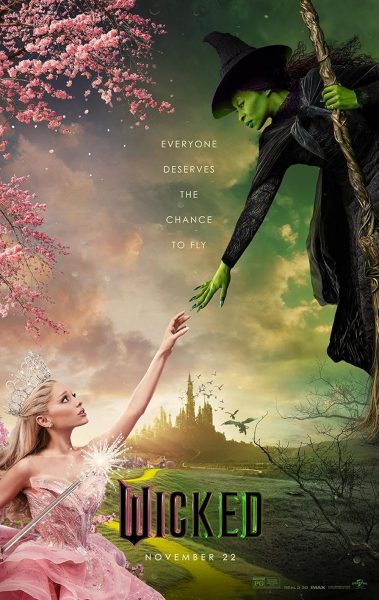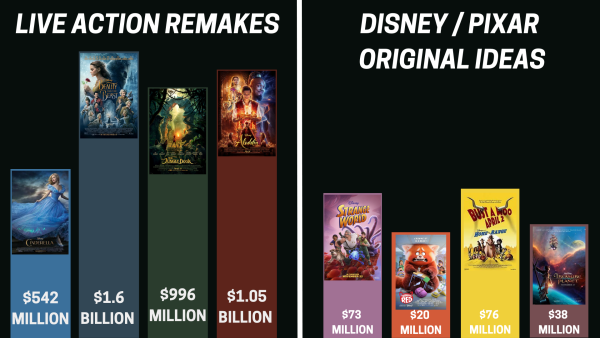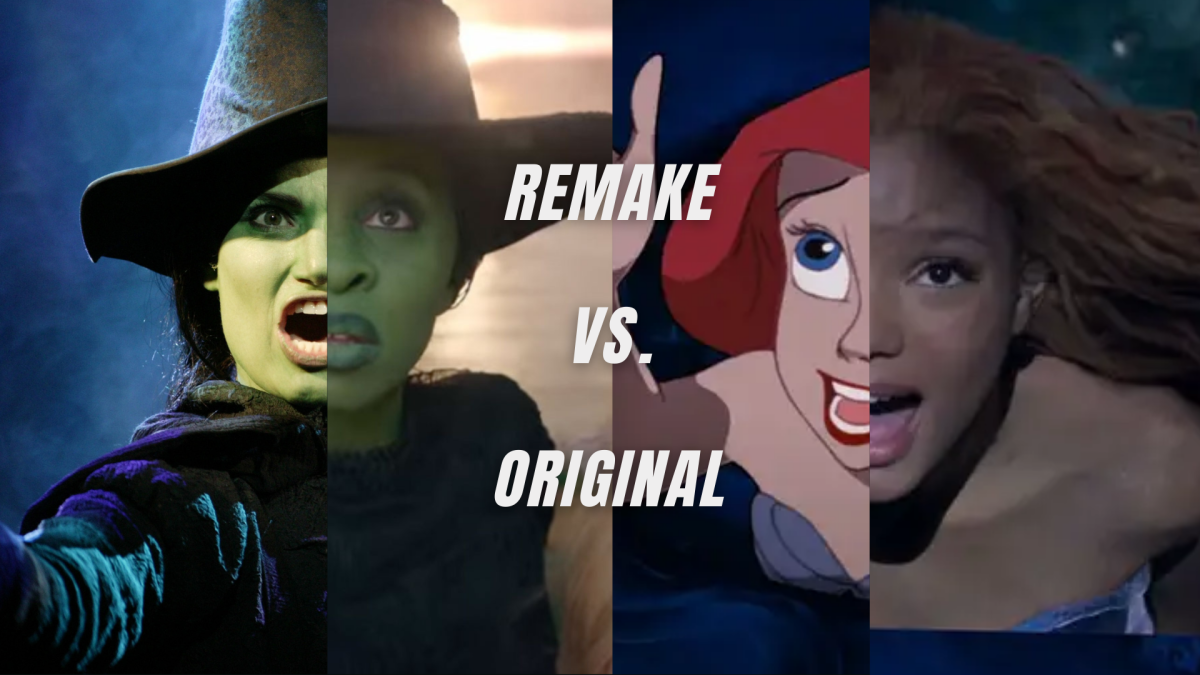Broadways beloved Wicked has recently made its debut to the big screen, grossing over $600 million dollars. This movie has joined a growing trend of live-action remakes in Hollywood. From The Lion King to Aladdin, studios are reimagining animated classics and beloved stories, which is also raising concern in production of the lack of originality, with these constant retellings.
The Beginning of the Trend

The trend of ongoing live action remakes began in 1994 with Disney’s Jungle Book remake, grossing around 52 million dollars worldwide, with 101 Dalmatians in 1996, just two years later, grossing significantly much more ($136 million). Both of these classic films live with real animals, and real puppies with a live action cast.
Since the first two remakes had done so well in the box office, they had started the trend of an ongoing trend that would continue to the present day, viewers like us now seeing regularly. For example, the success of Alice in Wonderland (2010) directed by Tim Burton, was when the world of live action truly took off. With its visually pleasing style and unique CGI, this retelling set the stage for countless Disney remakes with CGI, like The Lion King (2019), Aladdin (2019), The Lady and the Tramp (2019), and many more.
These films seem to capitalize on the nostalgia of older viewers, while also appealing to younger audiences who might have been as familiar with the original films and stories. The Wicked remake has made younger and older fans of the familiar Broadway musical extremely nostalgic. Senior Alyssa Ruthstrom stated, “I saw the original Broadway musical when I was around 11. The new movie has given me a new perspective on how truly amazing the music and story is. I feel like live action movies are a good way to relive familiar stories.”
Where did the originality go?
This constant string of remakes can be attributed to multiple factors. Film study teacher, Mr. Bergman, believes that “Hollywood is playing it really safe, and the consumer is losing because of the lack of originality. Wicked is a no-brainer that it’s going to do well.” This reliance on existent stories seems to be extremely common. Rather than taking a bet on a new, untested idea, many filmmakers and studios are choosing the easier path, which is reworking material that audiences know and love. Original movie plots and ideas are a gamble on investments.
For example, in the case of box office sales, remakes have performed significantly better than original animated films. According to Box office statistics, Pixar’s Elemental was a gamble on a new idea, which flopped significantly when it debuted in June 2023, only opening to $29.6 million dollars, which was considered the second-worst opening in Pixar History. However, Disney’s remake of The Little Mermaid debuted that same month, making $118.6 million in its first four days in the theater. Senior Angie Jaramillo-Navas, who went to see The Little Mermaid in theaters, stated, “When I went to see The Little Mermaid at the movies, I didn’t even know Elemental was out until it went on Disney+.”
Similarly, almost all Disney live action remakes that have come out in the past few decades have ranked grossed over $200 million dollars, while Disney/Pixar original movies have grossed much less than their original budget, usually under $100 million dollars.

Essentially, the flood of live-action remakes and reboots have shown that Hollywood will become more predictable, always choosing similar tales over originality due to liability and the risk of financial loss. While these films do seem to satisfy audiences worldwide, they also contribute to the fact that the film industry is running out of new ideas.



